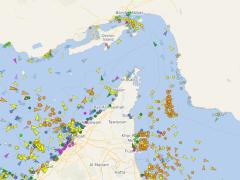Volatility in the export market requires the necessary resilience from farmers and financiers alike to navigate the threat of US tariffs and related trade challenges, Nedbank futures specialist Shane Naidoo told a media gathering at Nampo Harvest Day 2025.
Speaking at a ‘Nation in Conversation’ event focusing on global trade relations, Naidoo said the banks had realised the need for going “beyond banking” and understanding the symbiotic relationship of value-chain partners like freight forwarders in the agricultural sector.
He said, should the US administration of Donald Trump proceed with tariffs of 30%, currently paused until mid-June, preparedness came down to figuring out how it would affect the export market for growers.
“One of the things that tariffs do is it erodes margins and exports to certain markets,” Naidoo said.
“One of the things we are looking at is not just policy volatility but diversifying risk and reducing the concentration of dependency on certain markets like the US.”
He said that was why it was important for financing institutions to assist clients by aligning their service offerings with fast-changing trade parameters.
If farmers found that there was less demand for certain commodities like grain, but saw that it improved demand for other products like wine, fruit juices and nuts, it was about finding demand and understanding new demand opportunities, said Naidoo.
Additionally, banks needed to find out how farmers could create efficiency in the value chain to make sure that they reduced overheads, or grew headline earnings to increase profitability for their clients.
Agricultural assistance also extended to analysing the South African Futures Exchange (Safex), Naidoo said.
“Grain is one of those Safex futures that keep knocking your liquidity,” Naidoo said.
“So if it is presold and you know you have demand and you can protect it, it’s an option of choice for a farmer to say, ‘can I afford to unsecure a part of my exports. Do I have control in the macro market?’”
Most likely this was not the case, said Naidoo, and deploying the right mitigation strategies was where banks ought to be aligned with the trade concerns of growers and agricultural exporters.
Moving from a macro to a micro market it was important to diversify and increase basic efficiency in the value chain.
From a trade advisory role, it was important to provide a service to farmers that protected and increased profitability and liquidity, said Naidoo.













